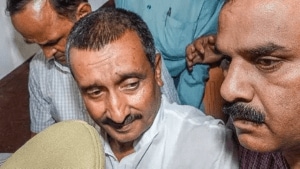Karnataka cartwheels
By not relinquishing power JDS is guilty of the worst form of political amorality. Polls only way out

The act of political duplicity perpetrated by the reigning father-son duo in Karnataka marks a new low in political morality. By refusing to relinquish power to the BJP after it had entered into a 20-month power sharing arrangement with that party, the Janata Dal Secular has betrayed not just coalition dharma but its own credibility. It is disingenuous on the part of JDS president and former prime minister, H.D. Deve Gowda, and his son and chief minister of the state, H.D. Kumaraswamy, to now cast aspersions on the BJP for its communalism. Why did this factor not dissuade them from striking a deal with the BJP? Why did it take 20 months for them to realise their political ally is not kosher? Why, indeed, did this fact suddenly assume importance just at the point when they were required to hand over power? This is not the politics of secularism, this is the politics of rank expediency.
Institutionalising power-sharing arrangements on a stable basis has always been difficult and, ironically, the BJP itself is no stranger to this fact. In 1997, when Mayawati decided to end her six-month power-sharing agreement with the saffron party after her own stint in power, UP was witness to some extremely unsavoury political developments. But it is not as if such deals are always bound to fail. In the sensitive state of J038;K, the PDP and the Congress 8211; despite some mutual hostility 8212; were able to achieve a fairly smooth mid-term exchange of the baton in a three-year power sharing agreement. This display of political maturity won for the troubled state a stable government despite the great odds, including threat from militants, against such an outcome.
In Karnataka, elections now loom large. It is better that they do. The Congress, having itself experienced a short and nasty brush with the characteristic opportunism of the JDS, should resist the temptation to enter into any arrangements with that party to prolong the life of the current assembly. Karnataka8217;s citizens should be spared further experiments in political chemistry and be allowed to vote in a new government. One that is, possibly, more stable and sensitive to their needs.
- 01
- 02
- 03
- 04
- 05































